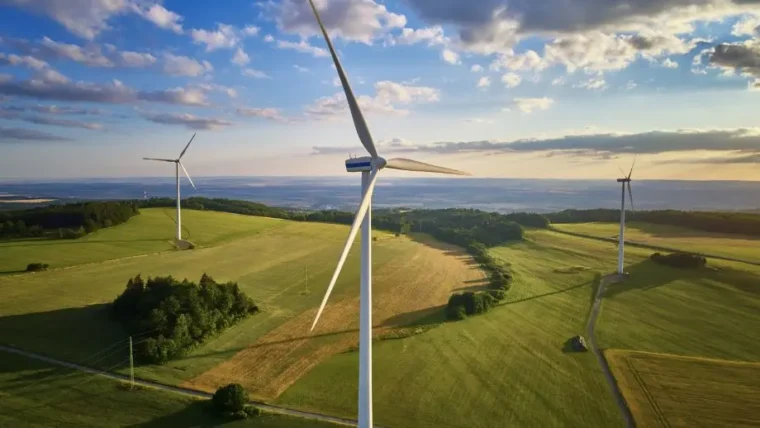Fortnightly Bulletin – 16th November 2020
16 November 2020

Legal Updates
Using waste tyres in escape ladders in water storage reservoirs: LRWP 77
This Low Risk Waste Position (LRWP) published by the Environment Agency (EA) replaces the Regulatory Position Statement, RPS 139: Using waste tyres in escape ladders in water storage reservoirs. If you follow the conditions in this LRWP, you can use waste tyres in escape ladders in water storage reservoirs without an environmental permit for a waste operation.
A LRWP means that the EA will not normally take enforcement action against you provided:
- Your activity meets the description set out in this LRWP;
- You comply with the conditions set out in this LRWP; and
- Your activity does not, and is not likely to, cause environmental pollution or harm human health.
Recycling target for glass in display screen equipment: RPS 242
Back in Issue 11 we reported on the publishing of RPS 242. Subsequently, on 6th November 2020 the EA limited the RPS so that it applies only to those handling leaded funnel glass. The expiry date has also been extended to 1st January 2021. If you comply with the conditions in this RPS, you do not need to meet the 70% recycling target in categories 3 and 4 of the WEEE Regulations.
Retaining shock absorbers and airbags in otherwise fully depolluted ELVs: RPS 195
This RPS applies if you retain intact shock absorbers and undeployed airbags in otherwise fully depolluted end-of-life vehicles (ELVs) which are stored on hardstanding at permitted sites. On 9th November 2020, the EA extended the expiry date until 30th September 2021 and included a condition where you must keep records for 2 years in order to demonstrate compliance with the RPS.
LPG flaring at end-of-life vehicle sites: RPS 202
If you comply with the conditions in this RPS you can flare LPG removed from vehicles at ELV sites that have an environmental permit. The EA have extended the expiry date of this RPS until 30th September 2023 and included a condition where you must keep records for 2 years in order to demonstrate compliance with the RPS.
Temporary storage of recyclable waste at collection points by or for charities: RPS 239
This RPS allows for the storage of recyclable waste at collection points without an environmental permit if all the financial benefits are going to charity, and, provided, that the conditions for quantities and timescales stipulated in the RPS are met. This RPS only applies to:
- Activities carried out by:
- a charity, for example a school;
- an establishment or undertaking that gives all the financial benefit for collecting the waste to a charity.
- Waste electrical and electronic equipment that can be recycled; and
- Non-hazardous waste that can be recycled.
Temporary storage of ELVs at a motor manufacturer’s dealership: RPS 205
If you comply with the conditions in this RPS, you do not need to apply for an environmental permit to temporarily store ELVs at a motor manufacturer’s dealership. On 10th November 2020, the EA extended the expiry date until 30th September 2023 and included a condition where you must keep records for 2 years in order to demonstrate compliance with the RPS.
COVID-19 and spreading slurry or milk on land, or storing slurry: RPS C22
If you landspread slurry or milk produced on a farm, you must normally comply with certain regulatory requirements. These requirements aim to make sure you do not apply nutrients to land in a way that:
- Exceeds the needs of the soil and crop; and
- Creates a risk of point source or diffuse pollution to surface water or groundwater.
Published by the EA on 11th November 2020, this COVID-19 RPS only applies if you cannot comply with regulatory requirements for landspreading slurry or milk, or storing slurry, due to the impacts of COVID-19. For example, if your supply chain is disrupted due to COVID-19 restrictions. You must get written agreement from the Environment Agency before you use this COVID-19 RPS.
Articles of Interest
Gov publishes draft plastics tax legislation
On the 12th November 2020, the UK Government published draft legislation for its impending plastics tax along with a summary of responses to its consultation.
The Plastic Packaging Tax, which was proposed by government in 2017, will apply from April 2022 to plastic packaging manufactured in, or imported into, the UK which contains less than 30% recycled plastic.
The tax will seek to provide a ‘clear economic incentive’ for businesses to use recycled material in the production of plastic packaging, which will create greater demand for this material.
In turn, it is hoped this will stimulate increased levels of recycling and collection of plastic waste, diverting it away from landfill or incineration.
Source: Circular, November 2020.
Fines and Prosecutions
Cambridgeshire company fined over £7000 for abstraction crime
The illegal abstractions happened when restrictions were in place following months of extremely dry weather. They occurred at a number of locations in Waterbeach and Ramsey Heights between 29th June and 20th July 2018. Another was also observed in July 2019 at Ramsey St Mary’s. The company repeated the crime less than a year later, illegally abstracting more water despite knowing they were already under investigation for the previous occasions.
Cambridge Magistrates’ Court heard how, on 1 occasion, the company illegally took more than 5 million litres of water, enough to fill 2 Olympic sized swimming pools. On another visit, an EA officer said a pump was running for 8 hours because no one from the company could attend to turn it off.
Nearly a month later, when a total ban on abstraction was in place, another visiting officer observed badly connected abstraction pipes ‘gushing’ with wasted water. Despite leaving a warning notice on the company’s equipment and providing advice and guidance, the company continued their ‘reckless’ actions.
In total, officers from the EA and the internal drainage board witnessed the illegal abstractions no less than 6 times. Each time, the company either had no licence to abstract, or broke the conditions of their licence by abstracting when restrictions were in force.
In a formal interview, a representative of the company admitted to the offences but claimed they didn’t understand the terms of the licences they were using.
Over-abstraction can deplete a river’s natural flow and even have an impact on groundwater levels. Protecting these levels is essential for a healthy ecology that is naturally resilient to drought and is safe for people to enjoy for recreation and wellbeing.
Source: Environment Agency, November 2020.
Online learning and events
Sustainable Timber Specification
23rd November 2020, 16:30
The UK building industry consumes millions of tonnes of timber a year. Trainer Robert Borruso will demonstrate that experience has shown that just specifying ‘sustainable timber’ does not always lead to ‘sustainable timber’ being used.
The session explains what schemes are available, and where they can go wrong and explores ways of designing out the risk of unsustainable timber being used in the first place.
Environmental Auditing 101: An introduction to the key principles of environmental auditing
23rd November 2020, 12:30
IEMA are hosting this introductory webinar with experts on environmental auditing, during which you will gain an understanding of:
- What represents a good audit;
- The key planning stages in conducting an audit;
- Practical insight on how to maximise value from audits;
- The importance of registered auditors and certification bodies.









